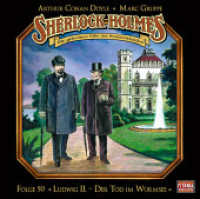- ホーム
- > 洋書
- > ドイツ書
- > Social Sciences, Jurisprudence & Economy
- > Education Science / Pedagogic
- > adult education
Full Description
In several chapters of this book it is argued that the critical power of learning could be regained by starting a new discussion of how these new fields of practice can be substantiated by topics such as learning arrangements, learning mechanisms, and learning strategies.








